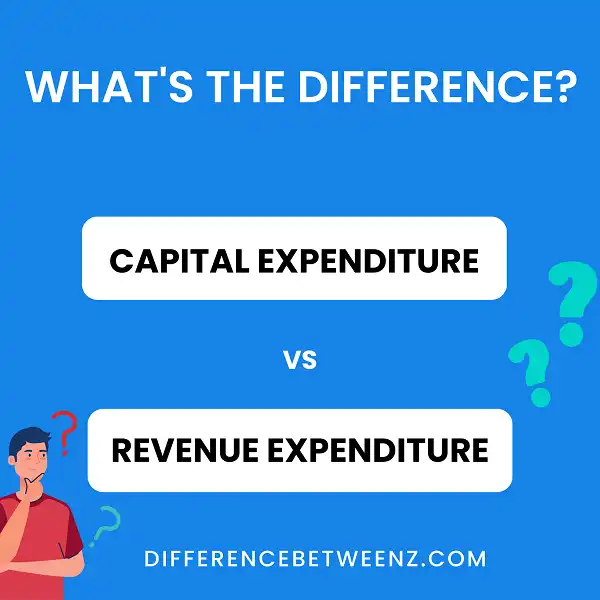What is the difference between capital expenditure and revenue expenditure? Most people would say that capital expenditures are for big-ticket items, like a new car or house, while revenue expenditures are for normal day-to-day expenses, like groceries or gasoline. However, this is not always the case. In fact, there is a lot more to it than that. So, what exactly is the difference between capital expenditure and revenue expenditure?
What is Capital Expenditure?
- Capital Expenditure (CAPEX) refers to the funds that a company set aside for investments in long-term assets or for enhancements of its current assets. These investments are made with the intention of furthering the business goals of the company and generating future revenues.
- The decision to make a CAPEX investment is usually made by the company’s board of directors or senior management after careful consideration of several factors, including the expected return on investment (ROI), the risks involved, and the impact on the company’s financial statement.
- Capital expenditures can be made on a variety of things, including new equipment, buildings, and land. They can also be used to improve existing assets, such as by renovating a factory or upgrading equipment. While CAPEX investments can be risky, they can also offer significant potential for growth and profitability. As such, they are an essential part of many businesses’ long-term strategies.
What is Revenue Expenditure?
Revenue expenditure is the part of an organization’s expenditure that is related to the day-to-day running of the organization and is not directly related to the generation of income or profits. Revenue expenditure includes items such as rent, salaries, and office supplies. In contrast, capital expenditure is expenditure on long-term assets, such as buildings or machinery. Revenue expenditure is sometimes also known as operating expense or operating expenditure.
Difference between Capital Expenditure and Revenue Expenditure
Capital Expenditure refers to the money spent by the company for the long-term growth of the organization. On the other hand, revenue expenditure is the money spent by the organization for its day-to-day operations. Capital expenditure is incurred on assets, while revenue expenditure is incurred on liabilities.
- Capital expenditure creates future benefits for the company, while revenue expenditure provides immediate benefits. Capital expenditure is generally recorded in the balance sheet, while revenue expenditure is recorded in the income statement.
- Capital expenditure leads to an increase in shareholders’ wealth, while revenue expenditure leads to a decrease in shareholders’ wealth. Capital expenditure decision affects the long-run profitability of a company, while revenue expenditure decision does not have an impact on long-run profitability.
- Capital expenditure decision is usually irreversible, while revenue expenditure decision is usually reversible. Capital Expenditure project usually involves high risk, whereas Revenue Expenditure project involves low risk.
- Capital Expenditure has a longer gestation period than Revenue Expenditure. In order to make a Capital Expenditure decision, a company needs to conduct a feasibility study, whereas a feasibility study is not required for making a Revenue Expenditure decision.
Capital Expenditure decisions are made by top-level management of a company, while Revenue Expenditure decisions are made by middle-level management or operational-level management. Some examples of Capital Expenditures include plant and machinery, buildings, vehicles, etc.
Conclusion
In order to make the most informed decisions for your business, it’s important to understand the difference between capital and revenue expenditures. By definition, capital expenses are costs that are incurred in order to obtain or improve long-term assets such as land, buildings, or equipment. Revenue expenses, on the other hand, are those that are associated with the day-to-day operations of a company and generate immediate income. When making budgetary decisions for your business, it’s crucial to know which category each expense falls into.


